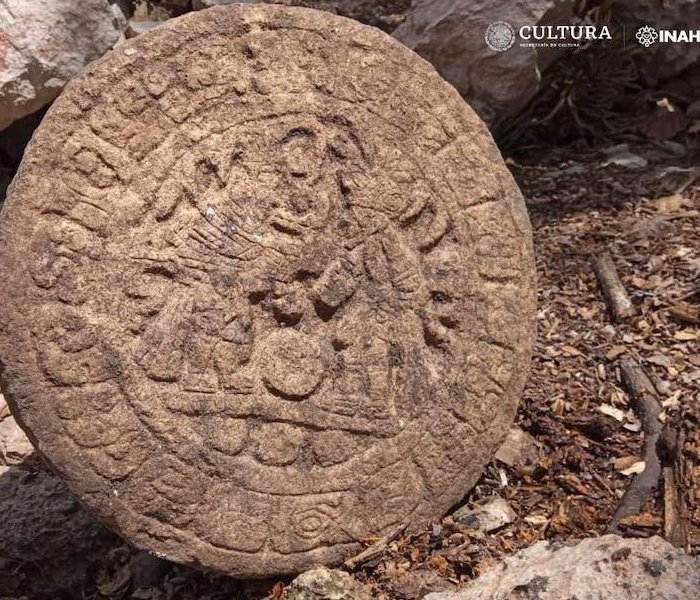Archaeologists Discover Ancient Mayan Board Game – Here’s What It Can Teach Modern Educators
AncientPages.com - Games have been played for thousands of years in cultures across the world.
There's the chequerboard game Senet, played in Egypt around BCE 3100. The African cup board game Mancala has been played since BCE 1400. Chess originated in India over 1,500 years ago. And the strategic game Go began in China 2,500 years ago.
The ball game marker discovered in Chichén Itzá. Credit: INAH
The Mayan civilization—which flourished in central America from BCE 2000 to 1500 AD—had several popular games. These games were thought to have the supernatural power to predict war. They include a cross-shaped board game called Patolli and a ball game called Pok-a-Tok.
Recently, a stone scoreboard was found by archaeologists in Chichén Itzá, Mexico's Yucatán peninsula. The Mayan people appeared to have used it to play a ritualistic game with a heavy ball.
This game held significant cultural and religious importance for the Mayan civilization. More than a simple recreational activity, it reflected the deep-rooted beliefs and values of the Mayan people. For Mayans, games provided a platform for the expression of physical abilities, the establishment of social order and the connection between the mortal and the divine.
The game discovered in Chichén Itzá symbolizes the delicate balance between light and darkness, embodying a cosmic struggle. Like other Mayan games, it was believed to influence the fate of harvests, the climate, communities and individuals.
In Mayan culture, winning a game like this was seen as a sign of divine favor. They believed that victorious people or teams had been chosen by the gods. Those who consistently lost were sometimes offered as sacrifices to the deities. Mayan games were not solely intended for entertainment, but served as ways to connect with the divine.
By participating in these games, Mayan people experienced a sense of communal identity and belonging. The rituals and beliefs associated with the games fostered a collective understanding and reinforced the connections between the physical, spiritual and social realms.
What educators can learn from ancient games
The concept of the "magic circle", introduced by Dutch historian Johan Huizinga, suggests that during games, players enter a temporary world with its own rules and boundaries.
This is exemplified in this Mayan find, which involves rules, suspension of normalcy and shared experiences.
The magic circle represents a ritual space that both transforms and builds a sense of community. Understanding of this concept can be used to promote inclusion and collaboration in modern day education. Playful experiences within game spaces can facilitate learning and create a sense of belonging, enabling students to grow and learn collectively.
Ancient rituals and games possess characteristics like repetition, structure and the use of symbolic objects that aid students in understanding the world. They also offer psychological and social benefits, fostering social bonds, reducing anxiety and improving cognitive flexibility and problem-solving skills.
Incorporating ancient and modern games in education promotes soft skills, critical thinking and inclusivity. In fostering communication, giving students agency, and crossing cultural divides, analogue games help students to understand one another better in the classroom.
Applying the lessons
The TEGA project, which we led, created a toolkit to support the development and customization of inclusive analogue games for learning, with an emphasis on accessibility.
Analogue games, like tabletop or board games, offer a tangible experience that helps teach abstract concepts which typically lack clear physical representations. Through interaction with game elements such as cards, dice and pieces, student players can grasp abstract ideas like probability and strategy more effectively than through digital games or other media.
By considering accessibility needs through their motor, sensory and cognitive dimensions, games can be designed to accommodate a wider range of students. So by incorporating board games into higher education, teachers can create a learning environments that works for all students.
Written by Sara Rye, Associate Professor, University of Bradford; Carla Sousa, Assistant professor, Lusófona University.
Provided by The Conversation
This article is republished from The Conversation under a Creative Commons license. Read the original article.
More From Ancient Pages
-
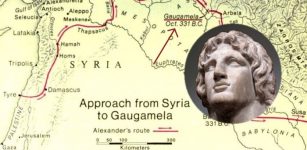 Why Is The Battle Of Gaugamela Called Broken ‘Camel’s Back’?
Ancient History Facts | Jul 1, 2020
Why Is The Battle Of Gaugamela Called Broken ‘Camel’s Back’?
Ancient History Facts | Jul 1, 2020 -
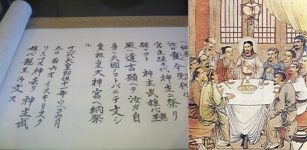 Controversial Ancient Takenouchi Documents Could-Re-Write Our History – Story Of Gods, Lost Continents And Ancient Sages
Featured Stories | Apr 28, 2017
Controversial Ancient Takenouchi Documents Could-Re-Write Our History – Story Of Gods, Lost Continents And Ancient Sages
Featured Stories | Apr 28, 2017 -
 Controversial 5,500-Year-Old Sumerian Star Map Of Ancient Nineveh Reveals Observation Of Köfels’ Impact Event
Artifacts | Dec 28, 2018
Controversial 5,500-Year-Old Sumerian Star Map Of Ancient Nineveh Reveals Observation Of Köfels’ Impact Event
Artifacts | Dec 28, 2018 -
 Incredible Technology In Mysterious Huashan Caves, China
Civilizations | Feb 10, 2015
Incredible Technology In Mysterious Huashan Caves, China
Civilizations | Feb 10, 2015 -
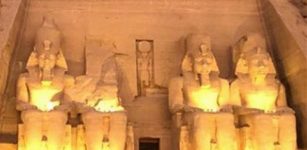 Magnificent Solar Alignment Phenomenon In Abu Simbel – The Sun Illuminates The Face Of Pharaoh Ramses II
Featured Stories | Nov 11, 2020
Magnificent Solar Alignment Phenomenon In Abu Simbel – The Sun Illuminates The Face Of Pharaoh Ramses II
Featured Stories | Nov 11, 2020 -
 Mystery Of The Hidden Wooden Hieroglyphic Tablets And The Unknown White Bearded Men – The Civilization That Died Twice – Part 2
Ancient Mysteries | Mar 6, 2021
Mystery Of The Hidden Wooden Hieroglyphic Tablets And The Unknown White Bearded Men – The Civilization That Died Twice – Part 2
Ancient Mysteries | Mar 6, 2021 -
 Catequil – Inca God Of Thunder And Lightning Who Predicted The Future And Was Cultural Hero Of Inca People
Featured Stories | Nov 11, 2023
Catequil – Inca God Of Thunder And Lightning Who Predicted The Future And Was Cultural Hero Of Inca People
Featured Stories | Nov 11, 2023 -
 Balkan Mountains’ Enigma – Strange Underground Anomaly Discovered
Featured Stories | Mar 30, 2025
Balkan Mountains’ Enigma – Strange Underground Anomaly Discovered
Featured Stories | Mar 30, 2025 -
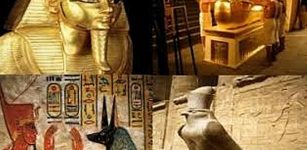 10 Fascinating Facts About Pharaohs
Ancient History Facts | Jun 21, 2016
10 Fascinating Facts About Pharaohs
Ancient History Facts | Jun 21, 2016 -
 Thor: Brave And Mighty Thunder God In Norse Mythology
Featured Stories | Nov 7, 2016
Thor: Brave And Mighty Thunder God In Norse Mythology
Featured Stories | Nov 7, 2016 -
 Surprising Evidence Of 12,000-Year-Old Unknown Advanced Secret Knowledge Held By Elite Individuals – The Connection – Part 2
Ancient Mysteries | Feb 7, 2021
Surprising Evidence Of 12,000-Year-Old Unknown Advanced Secret Knowledge Held By Elite Individuals – The Connection – Part 2
Ancient Mysteries | Feb 7, 2021 -
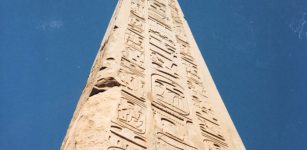 How On Earth Did The Ancient Egyptians Raise Their Colossal Obelisks?
Featured Stories | Feb 14, 2022
How On Earth Did The Ancient Egyptians Raise Their Colossal Obelisks?
Featured Stories | Feb 14, 2022 -
 Was Spruce Hill In Ohio Home To An Ancient Lost Civilization? Traces Of Strong Fire Puzzle Scientists
Ancient Mysteries | Jan 17, 2018
Was Spruce Hill In Ohio Home To An Ancient Lost Civilization? Traces Of Strong Fire Puzzle Scientists
Ancient Mysteries | Jan 17, 2018 -
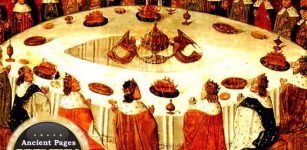 The Faery Grail Of Hospitality And Accord – Secrets Of The Elucidation – Part 2
Ancient Mysteries | Sep 27, 2019
The Faery Grail Of Hospitality And Accord – Secrets Of The Elucidation – Part 2
Ancient Mysteries | Sep 27, 2019 -
 Patasola: Hideous One-Legged Female Vampire Who Kills Driven By Hatred In Colombian Folklore
Featured Stories | Jul 26, 2019
Patasola: Hideous One-Legged Female Vampire Who Kills Driven By Hatred In Colombian Folklore
Featured Stories | Jul 26, 2019 -
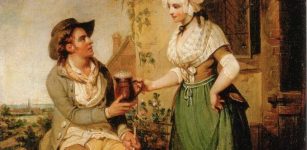 Ale Conner: Unpleasant And Dangerous Profession In Medieval England
Ancient History Facts | Oct 19, 2017
Ale Conner: Unpleasant And Dangerous Profession In Medieval England
Ancient History Facts | Oct 19, 2017 -
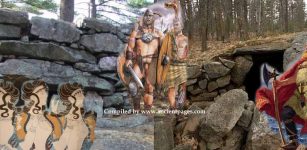 Riddle Of Mystery Hill: Who Built America’s Stonehenge?
Featured Stories | May 10, 2020
Riddle Of Mystery Hill: Who Built America’s Stonehenge?
Featured Stories | May 10, 2020 -
 What Is The Codex Sinaiticus And What Does It Mean?
Ancient History Facts | Feb 5, 2019
What Is The Codex Sinaiticus And What Does It Mean?
Ancient History Facts | Feb 5, 2019 -
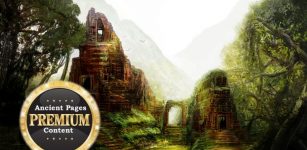 Ancient Monuments The World Is Not Allowed To See – Forbidden Zone – Part 2
Ancient Mysteries | Aug 27, 2020
Ancient Monuments The World Is Not Allowed To See – Forbidden Zone – Part 2
Ancient Mysteries | Aug 27, 2020 -
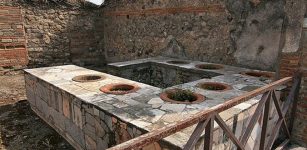 Thermopolium – Ancient Roman Restaurant Offered Fast Food But Was It A Good Idea To Eat There?
Ancient History Facts | Mar 16, 2018
Thermopolium – Ancient Roman Restaurant Offered Fast Food But Was It A Good Idea To Eat There?
Ancient History Facts | Mar 16, 2018

